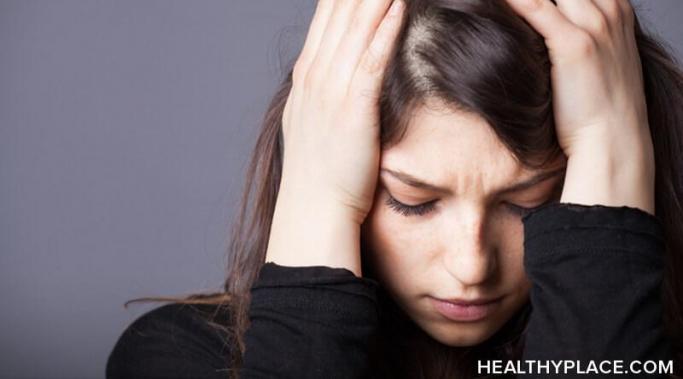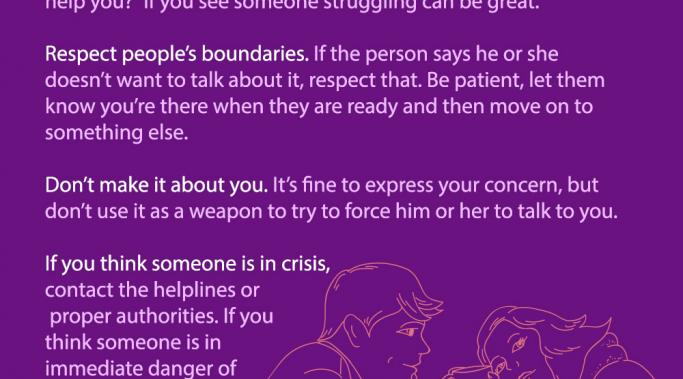Blogs
When I was first in self-harm recovery, school was one of my major triggers. Back to school anxiety always make me fear I was going to relapse. With all of the due dates, friend drama, and the pressure to do well in my classes, school was a very stressful time for me. I had a very hard time managing my self-harm urges when I was in high school, but when I started self-harm recovery in college I started to find some healthier coping skills to handle the stresses of life. In this blog post, I am going to be sharing with you three things that helped me manage my self-harm urges while in school.
The distinction between verbal and physical abuse is something I have questioned ever since my abusive relationship ended. My ex-partner shoved me, pushed me, kicked me and forced me out of his way when we argued. He raised his fist and made threats, but never actually hit me. Does this mean I was verbally, physically abused or both? I think the answer depends on where we, as individuals, draw the line.
I find survival skills for family drama and mental illness are critical. Some families are simple while others can feel messy. My family is the latter. Fighting among family feels like the norm (Toxic Relationships: Dealing With People Who Have Issues). Dealing with family drama and mental illness at the same time can feel like too much to handle at once. I've had to try out some survival skills to deal with family drama when I feel it affecting my mental illnesses of depression and anxiety.
I’m Jennifer Smith, and I’m thrilled to be writing for Coping with Depression at HealthyPlace. I was diagnosed with major depression in January 2017. This came as a result of a near suicide attempt which required inpatient psychiatric care. I had struggled with depressive episodes throughout my life, but this was a much more severe event. Up until this point, I had been adept at attributing my depression to simple moodiness or just being tired. I had adopted routines and methods of hiding my depression from others, and the result s of that nearly cost me my life. I am currently on medication and in therapy, and I am learning how to cope with my depression in healthy ways rather than ignore it.
Not til we are lost, in other words, not til we have lost the world, do we begin to find ourselves and realize where we are. ~ Henry David Thoreau
Well-intentioned people often suggest that my child with mental illness isn’t actually mentally ill. They insist he has an underlying medical condition. Lately, it's pediatric autoimmune neuropsychiatric disorders associated with streptococcal infections (PANDAS). To those who interject these suggestions without invitation into a conversation about mental illness, know it can be more harmful than you think.
Note: I am not an "expert", nor am I writing this in a professional capacity. I am a parent on my own journey, which is where this blog comes from.
Some people aren’t sure where to start when they want to talk about mental health or illness with a loved one. Knowing how to talk about mental illness is important, but broaching the subject can be difficult for all parties involved. Whether you’re on the mental illness or mental wellness side of the equation, stress over the talk can lead to not having the conversation at all or going about it all the wrong way. Is there a good way to talk about mental health?
Many Americans are scared to talk to a supervisor about mental illness or disclose their mental health condition at work to anyone for fear of career damage or termination. Suffering in silence, ironically, means your work may also suffer. Poor performance leads to intensified anxiety and other symptoms as you worry about your job security and assignment quality. So what do you do? How do you talk to a supervisor about mental illness?
While active in my binge eating disorder, I thought "Recovery isn't meant for me" because I could not imagine what a life free of my binge eating disorder could look like. Sometimes I think I didn't even want to. I thought my behaviors were keeping me sane, so why would I want to envision living in any other way? I was certain binge eating disorder recovery wasn't for me.
According to our emergency plan for mental health crises, I had to call the police. After melting down for an hour, my daughter with bipolar disorder had locked herself in the bathroom threatening to kill herself. Knowing the signs of suicide, my daughter and I (with the help of her therapist) had created a safety contract—she violated it by locking herself away from me—I had to call according to the emergency plan for mental health crises.









